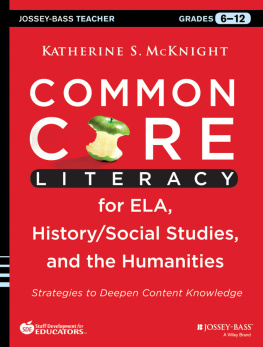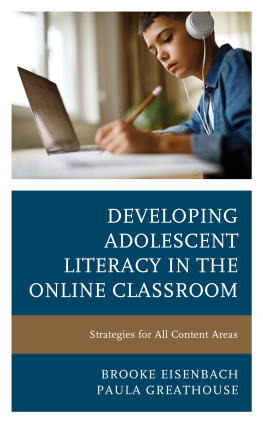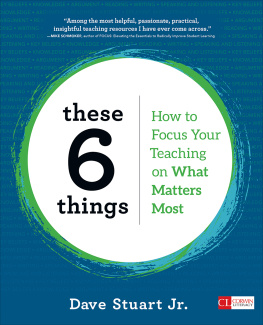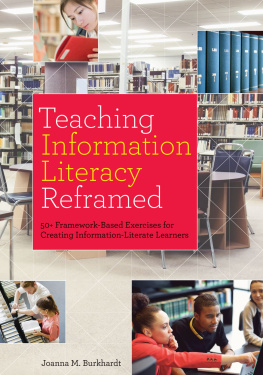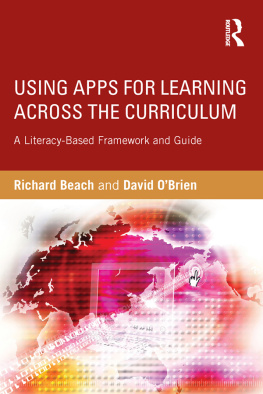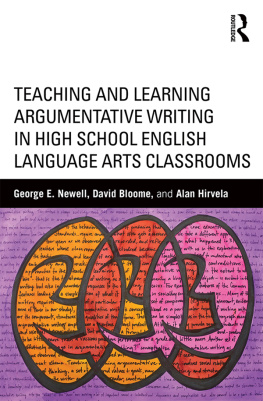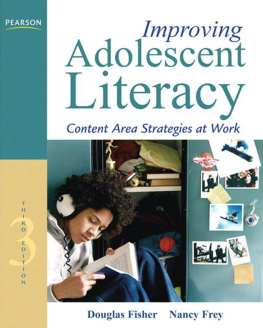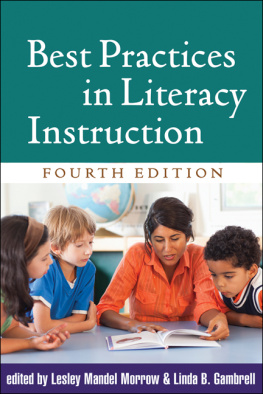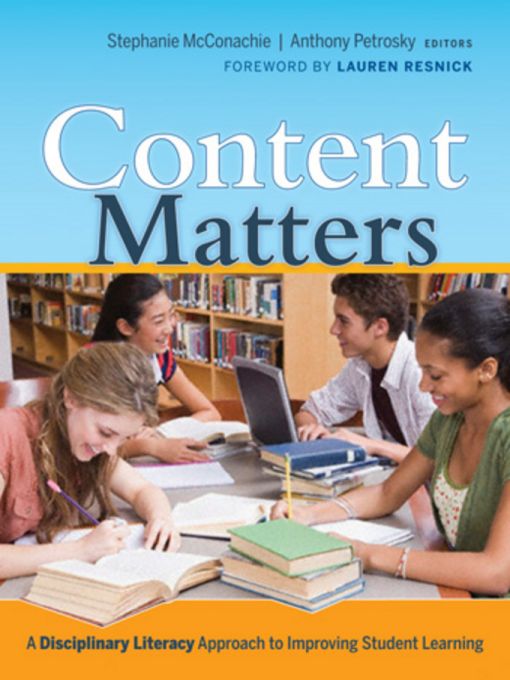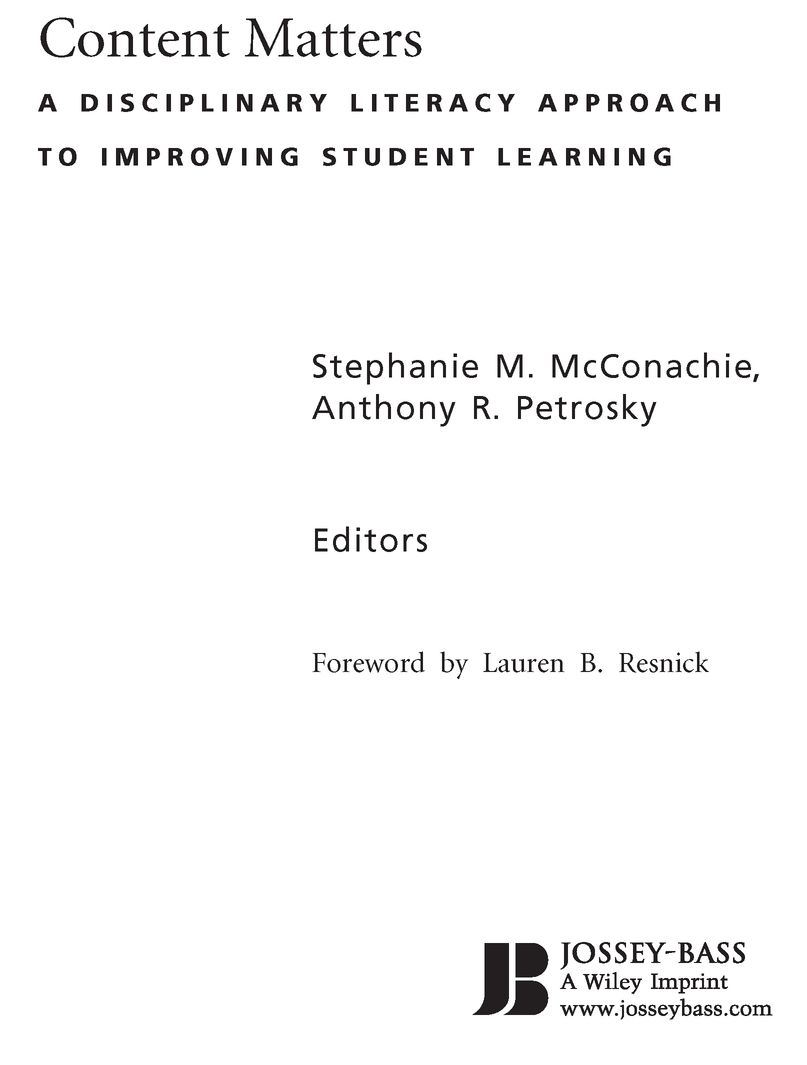To Lauren B. Resnick, founder and director of the Institute for Learning and former director of the Learning Research and Development Center
FOREWORD
This small book may start a revolutiona revolution that ends the long and agonizing debates between thinking skills and content knowledge, between teacher expertise and central curriculum, between ensuring the basics and reaching for the top. Arguments about these issues have been roiling the education policy world, often with little impact on the real world of teaching and teachers. Now, research has produced a new understanding of how to improve learning and build professional organizations that learn every day.
This research tells us that there is no struggle between thinking skills and content knowledge. To the contrary, we cannot effectively teachor learneither one without the other. Drilling on isolated bits of content knowledge, without ensuring that students use the knowledge thoughtfully, will raise test scores and keep the big, bad wolf of adequate yearly progress away from the door for another year. But the only knowledge that will stick, that will be available to build on next month or next year (or in college), is knowledge that a student has worked to understand. This is a basic principle of learning. We call it academic rigor (learning rigorous content) in the thinking curriculum (units of study in which students think and actively use knowledge on a daily basis). Its a principle you can count on.
But it is a principle that is difficult to apply alone. It calls for change in virtually every aspect of how teaching and learning occursfrom the official curriculum of a district or school, to how teachers work together to design and enact powerful teaching, to the kinds of disciplinary-specific thinking that is evidenced in well-structured student discussions. This book provides an in-depth look at a framework for making these changes. The disciplinary literacy framework, developed over eight years in collaboration with multiple, diverse urban school districts, provides the means for schools and school systems to give students at every level of entering capacity a coherent and intellectually challenging program of discipline-specific learning in the core subject matters.
The disciplinary literacy (DL) way of working is likely to be new to many working educators, although it has deep roots in the tradition of liberal education that once guided educational thinking. For this reason, the DL team has developed strategies for initiating the program that begins with professional learning opportunitiesincluding reflection on the experience of learning new disciplinary content and collaboration in designing and implementing DL lessons. The DL framework can also be used to support district- or school-specific curriculum development efforts.
Because all DL teaching and learning proceeds from the necessary interaction between thinking skills and content knowledge, the frameworks offer promise for taming the bear of secondary school reform. The emphasis on disciplinary knowledge and habits of mind resonates with secondary teachers who value the discipline they are teaching. Studentseven those with initially limited academic language capabilityare given opportunities to engage in sophisticated intellectual work. As part of the curriculum and everyday teaching, teachers attend to the literacy learning needs of students within content knowledge and habits of thinking. Students experience satisfaction and motivation for further academic work when they are treated as intelligent people who come to class with knowledge and reasoning skills. Everyone benefits from this reintellectualization of school work that moves it away from the generic and remedial and brings it back to disciplines.
Content Matters presents a practical and immediately useful way to think about curriculum, teacher development, and system change. This book is for everyone who is curious about the revolution in teaching and learning, everyone who cares about the future of educationeducators, college professors who teach preservice teachers and administrators, members of school boards, legislators, and parents. As you read this book, you will start to understand how and why this way of teaching and learning is so different from business as usual and why it is so important.
Lauren B. Resnick
Distinguished University Professor
University of Pittsburgh
PREFACE
Content Matters offers teachers and instructional leaders coherent, research-based, and field-tested approaches for developing literacy in disciplinary teaching. Our vision of literacy reaches beyond reading strategies into the content areas where literacy instruction more broadly conceived involves students in reading, speaking, writing, and habits of thinking as they are practiced in each of the core disciplines: English language arts, history, mathematics, and science.
This is a book, then, about teaching and learning in the disciplines. It offers cases of teachers and students in middle and high schools working together in English language arts, history, mathematics, and science in purposefully sequenced lessons designed to engage them in cognitively challenging tasks. It is a book about the ways in which the careful design and use of teaching tools and rituals and routines can promote disciplinary literacy (DL) and habits of thinking that can evolve only in classrooms where students talk with each other in rich discussions of problems using the kinds of evidence and explanations that are specific to each discipline. We make our case simply: literacy is always rooted in disciplinary content. Content matters. So do the tasks with which we engage students. And so do the ways in which students engage each other.
When the Institute for Learning at the University of Pittsburgh introduced the Disciplinary Literacy Framework in 2002, literacy instruction was almost always thought of as reading instruction. The prevailing wisdom was that students should be taught generic reading strategies to apply to any and all texts and that thinking skills could be taught separately from specific content inquiries. There was very little guidance in the field for developing lessons to engage students in the habits of reading, writing, speaking, and thinking that would help them develop content knowledge and disciplinary literacy skills. Since then, and partly through the work of the Institute for Learning in its partnerships with large urban school districts, the field has begun to shift its views about literacy development and instruction for middle and secondary school students to a disciplinary-based framework.
Content Matters presents teachers and instructional leaders with the Institute for Learnings disciplinary framework in each of the four core content areas. The chapter authors provide guidance in developing instruction and offer examples of cognitively challenging sequences of lessons grounded in the five disciplinary literacy principles:
Knowledge and thinkingand therefore literacy developmentmust go hand in hand.
Learning is apprenticeship.
Teachers mentor students as apprentices.
Classroom culture socializes intelligence.
Instruction and assessment drive each other.


